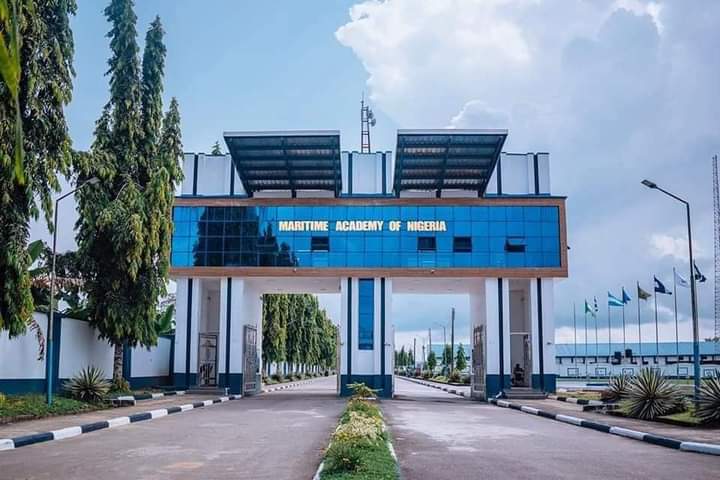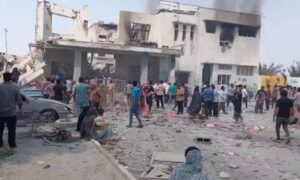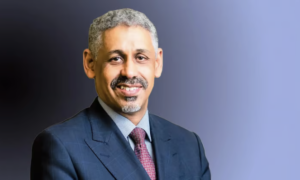BY ISAIAH EKA
The maritime industry is a crucial facilitator of international trade through shipping and port operations; hence, the need for building and training the critical mass of workforce needed for operational efficiency.
In Nigeria, and across the globe, the workforce at the maritime industry coordinates a web of commercial activities–linking supply chains to raw materials and end products.
In recognition of the importance of maritime workforce, the Maritime Academy of Nigeria (MAN), Oron, Akwa Ibom, was established in1977 to provide high-quality training and global-standard education for the merchant navy and allied industries.
The academy’s establishing policy mandates it to produce professionals that will meet customer expectations through mod- ern technology and continuous quality improvement in ship operations, port management, and other marine services.
Recently, the academy held its 2025 Third Quarter Citizens’ and Stakeholders’ Engagement Forum aimed to project the activities and achievements of the institution.
At the theme of the forum was: “Implementation of the National policy on Marine and Blue Economy for Onboard Training of Nigerian Merchant Navy Cadets and Critical Needs of the Marine Academy.”
In his speech at the event, the Acting Rector, Dr. Kevin Okonna, reiterated the academy’s commitment to achieving the reasons for its establishment.
Okonna said that within the 10 months that he had been on the saddle as the academy’s helmsman, critical policy initiatives had been taken to keep the institution in line with the 1978 International Convention on Standards of Training, Certification and Watch-keeping for Seafarers (STCW Convention).
The acting rector said that the institution had received collaboration with maritime professional associations and the alumni of the academy for employment of more maritime professionals to enable expansion in the academy’s course offering and improvement in quality of training.
He said that since January, the academy had employed seven marine professional lecturers to enhance cadets teaching and learning.
According to him, more professionals will be joining the academy as soon as approval for recruitment is given.
“The academy has obtained the commitment of shipowners and shipowner associations for the provision of onboard training opportunities for the cadets of Maritime Academy of Nigeria, in line with the National Policy on Marine and Blue Economy.
“It has obtained tremendous support of frontline professional bodies for collaboration for course recognition/accreditation and registration of all cadets in the academy with the respective professional bodies.’’
Okonna listed some of the professional associations to include the Nautical Institute (NI), UK, Institute of Marine Engineering, Science and Technology (IMarEST), UK, and the Chartered Institute of Logistics and Transport (CILT).
He said with the collaboration, all cadets of the academy would have to be registered with at least one professional association to prepare them for future engagement inter- nationally.
Okonna said management had intensified collaboration with the Nigerian Maritime Administration and Safety Agency (NIMASA) on issues bordering on increased recognition of Nigeria’s seafarer’s certificates of competency.
He said that to enhance academic excellence and professionalism, the academy recently acquired state-of-the-art simulators that were being perfectly maintained and utilised for STCW mandatory training of its cadets and short courses participants from the industry.
“The simulators include; a 30-traineestation Multifunctional Classroom (MFC) Simulator, Full Mission Bridge Simulator, Full Mission Engine Room Simulator, and Virtual Reality (Ocular Vision) Simulator.
“The Multi-Functional Classroom (MFC) Simulator has eight part-task simulators including; Radar/ARPA, ECDIS, GMDSS, Navigation/Manoeuvring, Dynamic Positioning, Liquid Cargo Handling, High Voltage, and Engine Room simulators in one classroom.
“It is an innovation created through the partnership between the Academy and the globally recognised simulator manufacturers, the Applied Research International (ARI).
“The simulators have both International and Nigerian Port Areas and navigational channels for exercises.
“All the simulator-based courses are ac- credited and many of the courses are always fully booked ahead of schedule.”
The acting rector said that aside from teaching and learning, the welfare of cadets and staff members had been prioritised for a healthy learning environment.















